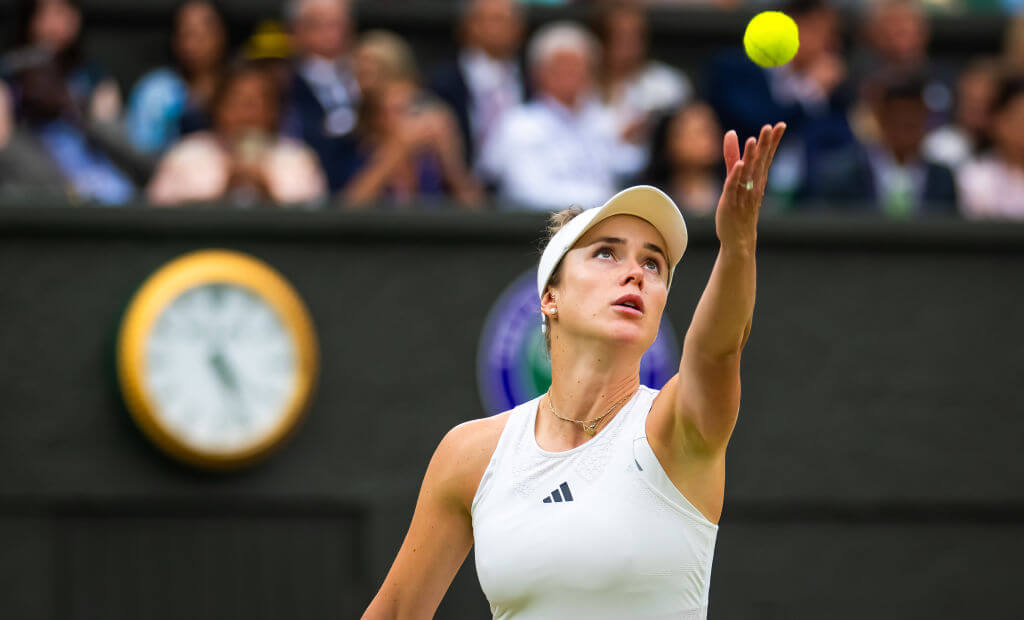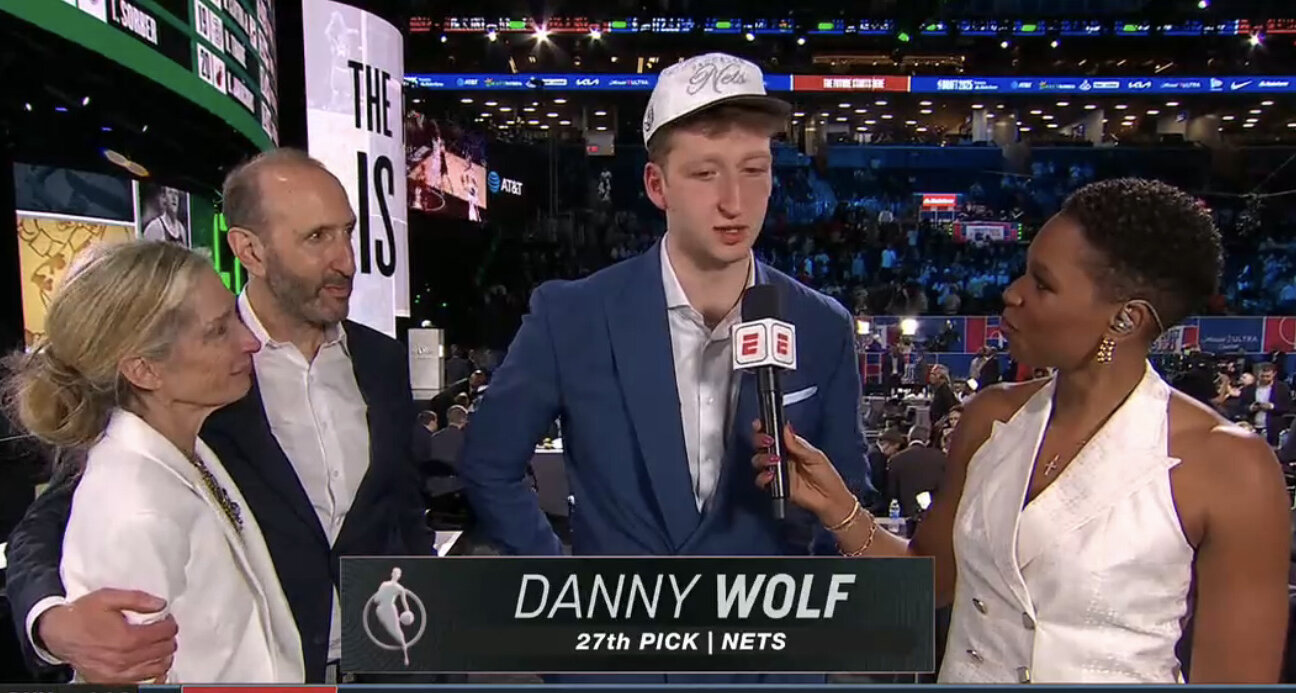Elina Svitolina, Ukrainian tennis star of ‘unconfirmed Jewish heritage,’ on cusp of Wimbledon history
Winning Thursday’s match would make her first Jewish woman to make final since 1956 — that is, if she’s actually Jewish

Elina Svitolina in action against Iga Swiatek of Poland in the Wimbledon quarterfinal. Photo by Robert Prange/Getty Images
Elina Svitolina didn’t expect to make it this far.
The 28-year-old Ukrainian tennis pro —who is Jewish according to some reports but of “unconfirmed Jewish heritage” according to others — had tickets to see Harry Styles in Vienna on June 8, the day after Wimbledon’s third round. But Svitolina, a long shot whose world ranking was too low to qualify for the tournament automatically, missed the concert. She won her third-round match, then two more.
A win against Markéta Vondroušová on Thursday would make her the first Jewish woman to make the Wimbledon final since Angela Buxton in 1956. That is, if Svitolina is Jewish.
But even if her run ends before then, Svitolina’s comeback, fueled by a desire to represent and inspire her war-torn home country, has been remarkable.
“I’m happy I can bring a little happiness to their lives,” she said after defeating Iga Swiatek, who is ranked No. 1 in the world, in the quarterfinal. “There were many videos on the internet where the kids are watching on their phones. This really makes my heart melt seeing this.”
Citing emotional exhaustion from the war in Ukraine, Svitolina quit the sport in March 2022, not long after announcing she would refuse to play any opponent from Russia or Belarus. Returning to competition after more than a year — and as a new mom — she was knocked out in the early rounds of minor tournaments. Once ranked third in the world, she fell to No. 76.
But given a wild-card bid to Wimbledon, she found a new gear — and a Belarusian opponent, 19th-ranked Victoria Azarenka. In that match, Svitolina rallied after losing the first set, advancing only after a thrilling 11-9 tiebreaker in the third. She did not return Azarenka’s wave after match point.
After Svitolina beat Swiatek in the next round, commentator and former champion Chris Evert choked up on the air.
“She’s been going through a very sad time with what’s been happening in Ukraine,” Evert said. “To see her being so inspired by this and playing so well, it’s very touching for me.”
What a touching summary by Chris Evert on the victory by #Svitolina and family and her Country of Ukraine 🙏👏#Wimbledon pic.twitter.com/XgnS0jPKRm
— Connie Carberg (@ConnieScouts) July 11, 2023
Making it to the final could put Svitolina in rare company — again, if she is Jewish — and alongside a pair of women known for their courage.
Buxton, an Englishwoman whose grandparents fled the pogroms in Russia, made the singles final the same year she won the women’s doubles tournament in 1956 with African American woman Althea Gibson.
And one Jewish woman has won Wimbledon: Helen Hull Jacobs, who grew up in Berkeley, won in 1936, one of five grand slam singles titles she snagged. Hull Jacobs was also a trendsetting LGBTQ+ athlete, a lesbian who popularized men’s-tailored shorts on the court.
Only one Jewish men’s player has won Wimbledon — Dick Savitt in 1951. (Vic Seixas, who won two years later, has been reported in several places to have Jewish heritage, but The Philadelphia Inquirer reported that he was raised Presbyterian.)
If she wins Thursday, Svitolina will face the winner of Tunisian Ons Jabeur versus Aryna Sabalenka — the latter also from Belarus — in the July 16 final. (That day is also the second anniversary of her marriage to French tennis player Gaël Monfils.)
Either way, she should be able to catch Harry Styles in Europe afterward. He’s got tour dates in Portugal and Italy next week — and after Styles heard about Svitolina’s canceled plans, he invited her directly.
Correction: A previous version of this article misstated the first Jewish Wimbledon champion. It was Helen Hull Jacobs in 1936.
























